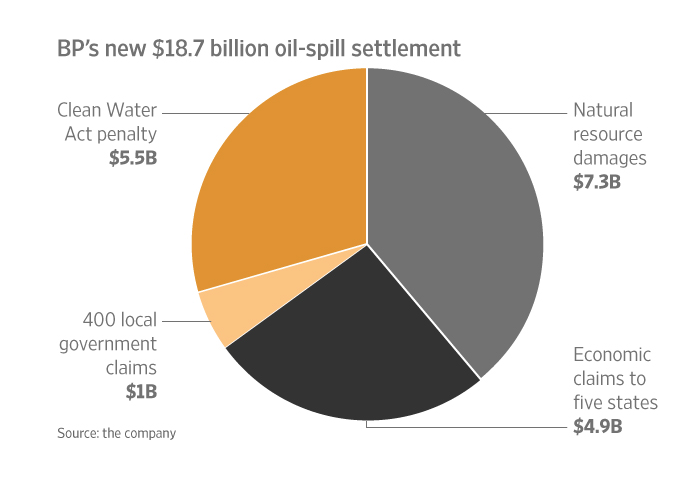And now, the work begins
 After years of high-stakes litigation and media fanfare, the parties—BP, the federal government, and the Governors of Alabama, Florida, Louisiana, Mississippi and Texas—announced the outline of a roughly $18.7 billion settlement to restore environmental and economic damages in the region.
After years of high-stakes litigation and media fanfare, the parties—BP, the federal government, and the Governors of Alabama, Florida, Louisiana, Mississippi and Texas—announced the outline of a roughly $18.7 billion settlement to restore environmental and economic damages in the region.
The billions from the BP settlement that will soon flow to the Gulf Coast states provide an opportunity to repair ecosystems and restore the economic and social life of coastal communities.
Litigation around the 2010 BP oil spill took an important step with an agreement in principle that offers promise of restoration and resilience to ecosystems and communities along the Gulf Coast. After years of high-stakes litigation and media fanfare, the parties—BP, the federal government, and the Governors of Alabama, Florida, Louisiana, Mississippi and Texas—announced the outline of a roughly $18.7 billion settlement to restore environmental and economic damages in the region. It would be the largest environmental settlement in US history.
The parties deserve credit for working earnestly to reach agreement so that the hard work of restoration can begin now instead of decades down the road. Gulf Coast communities will no longer face the prospect of years and years of courtroom drama (as Alaskans experienced after the Exxon Valdez) determining the fate of their community’s recovery. Instead, they can soon begin to engage with the federal government and the states in putting the money to work.
The money is not only overdue, but sorely needed. Coastal communities along the Gulf of Mexico have been battered in the last decade by a series of hurricanes (starting with Katrina in 2005), an economic dip around 2008 that exacerbated deep-seated poverty, and finally by the Deepwater Horizon explosion and the oil that gushed into the waters for months in 2010.
As the states and federal agencies get ready to invest in repairing the damage to the ecosystems, Oxfam has joined with others in calling for careful planning to benefit the people along the coast. Careful ecosystem restoration presents an enormous opportunity to restore the environment, as well as the economic, social, and cultural health of the communities that rely on natural resources
After the spill, Oxfam and allies worked hard to push for passage of the RESTORE Act, which will ensure that the majority of the funds in the proposed settlement flow to the Gulf Coast, restoring coastal habitat and creating new economic opportunities. These goals can go hand in hand, and these programs can strengthen each other.
The work of restoring our oyster beds, wetlands, barrier islands, rivers, and coastal habitat can easily be done by folks who have been displaced and unemployed by the damage to these same resources. Local workers can be trained and employed to do the work of restoration, and they can find new ladders of opportunity. Ecosystem restoration jobs can enable local workers to get access to living wages and new in-demand job skills in occupations like engineering technicians, welders, and boat captains. Oxfam is currently working with community groups, workforce agencies and local technical colleges in Mississippi and Louisiana to develop pilot training initiatives to prepare local workers for restoration jobs.
As part of the RESTORE Act, the Gulf Coast Ecosystem Restoration Council currently has an opportunity in developing contract terms. Recently Oxfam joined almost 70 Gulf Coast businesses, tribal, conservation, workforce and community development organizations in a letter urging the Council to ensure it strongly promotes the hiring and training of local workers as it selects contractors to design, construct, and administer ecosystem restoration projects. This is just one step to ensure this historic settlement helps communities and the environment, but it’s one that can set an important example for businesses, nonprofits and government agencies, as billions of dollars are spent across the region.
As the Gulf Coast region begins an historic investment in repairing its coast, it faces a significant new opportunity: It can tap into the local workforce as it prepares the next generation of environmental stewards and restoration professionals.